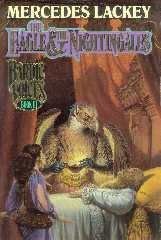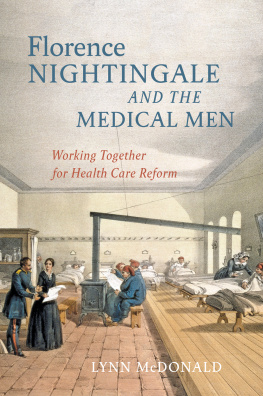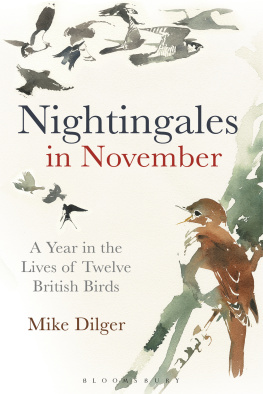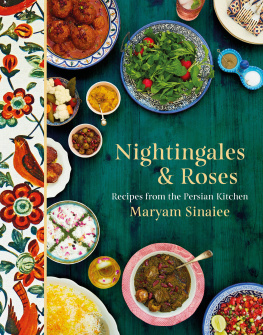Susan Straight - A Million Nightingales
Here you can read online Susan Straight - A Million Nightingales full text of the book (entire story) in english for free. Download pdf and epub, get meaning, cover and reviews about this ebook. genre: Art. Description of the work, (preface) as well as reviews are available. Best literature library LitArk.com created for fans of good reading and offers a wide selection of genres:
Romance novel
Science fiction
Adventure
Detective
Science
History
Home and family
Prose
Art
Politics
Computer
Non-fiction
Religion
Business
Children
Humor
Choose a favorite category and find really read worthwhile books. Enjoy immersion in the world of imagination, feel the emotions of the characters or learn something new for yourself, make an fascinating discovery.

- Book:A Million Nightingales
- Author:
- Genre:
- Rating:4 / 5
- Favourites:Add to favourites
- Your mark:
- 80
- 1
- 2
- 3
- 4
- 5
A Million Nightingales: summary, description and annotation
We offer to read an annotation, description, summary or preface (depends on what the author of the book "A Million Nightingales" wrote himself). If you haven't found the necessary information about the book — write in the comments, we will try to find it.
A Million Nightingales — read online for free the complete book (whole text) full work
Below is the text of the book, divided by pages. System saving the place of the last page read, allows you to conveniently read the book "A Million Nightingales" online for free, without having to search again every time where you left off. Put a bookmark, and you can go to the page where you finished reading at any time.
Font size:
Interval:
Bookmark:
Debts will always be owed.
I can't write anything without Richard Parks and Holly Robinson. At Pantheon, Alice van Straalen. Also Elaine Pfefferblit, Beth Kep-hart, Juli Jameson, Kate Moses, Dwayne Sims and all my Sims family, Revia Chandler and all the Aubert family, Kari Rohr, Eric Barr, Nicole Vines, and Tanya Jones, who helped me in many ways. My mother and father, who are never done, my neighbors who see the light on at 2:00 a.m., my relatives who tell storiesit takes a village to raise a book. In Washington, Louisiana, I was honored to share a house and stories with Susan and Robert Tinney.
I am immensely grateful to libraries and their staffsthe University of California, Riverside, library staff especially for years of friendly companionship. In the stacks, I found the story of a remarkable woman named Manon Baldwin in Creoles of Color in the Bayou Country, by Carl A. Brasseaux, Keith P. Fontenot, and Claude F. Oubre. I found recipes for cleansers and tonics in a book by a remarkable man, Robert Roberts, who wrote The House Servant's Directory, one of the first books written by an African American and published by a commercial press (in 1827). I found inspiration in Africans in Colonial Louisiana, by Gwendolyn Midlo Hall, and Intimate Enemies: The Two Worlds of the Baroness de Pontalba, by Christina Vella.
I owe my girls big-time: Gaila, Delphine, and Rosette.
Aquaboogie: A Novel in Stories
I Been in Sorrow's Kitchen and Licked Out All the Pots
Blacker Than a Thousand Midnights
The Gettin Place
Highwire Moon
A MILLION NIGHTINGALES
Susan Straight is the author of five previous novels, including the bestselling I Been in Sorrow's Kitchen and Licked Out All the Pots, and Highwire Moon, which was a finalist for the National Book Award and won the California Book Award. She is a regular commentator on NPR, and her fiction and essays have appeared in Harper's Magazine, Salon, Zoetrope, McSweeney's, and The Best American Short Stories, among many other publications. She has received a Lannan Foundation Award and a Guggenheim Fellowship. She lives in Riverside, California, with her three daughters.
NINETEENTH-CENTURY LOUISIANA
During the 1700s and the first few years of the 1800s, Louisiana was a colony ruled at different times by France or Spain. Many native Indian tribes lived there, along with French, Spanish, Swiss, German, and Canadian officials, soldiers, farmers, and trappers, as well as Acadian refugees and Africans from a number of tribes brought as slaves to the Americas. Each group contributed words and phrases from their own language to the standard French spoken by residents who had emigrated from France. The result was Creole French, unique to Louisiana. In 1803 Louisiana became an American territory and in 1812 it joined the Union, but it would be years before English was widely spoken.
In late summer, I collected the moss with the same long poles we used to knock down the pecans in fall. I waved the pole around in the gray tangles and pulled them down from the oaks on the land beside the house, not far from the clearing where we washed and sewed.
I couldn't take the moss from the two oaks in front of the house, where the windows faced the river, because Madame Bor-delon liked to look at that moss. It was a decoration. She watched me from the window of her bedroom. Everything on the front land at Azure was Madame's, for decoration. Everything in the backlands was Msieu Bordelon's, for money.
And meshe stared at me all the time now. She stared at my hair, though she couldn't see it. My hair was wrapped under the black tignon my mother had made last year for me, when I turned thirteen. I hated the weight on my skull. My hair was to be hidden, my mother said. That was the law.
The cloth at my forehead felt like a bandage. Like it was holding in my brain. A brain floated in Doctor Tom's jar, in the room where he always stayed when he came to treat Grandmre Borde-lon, for her fatness, and where he stayed now to treat Cphaline, for her face. The brain was like a huge, wrinkled, pale pecan. One that didn't break in half. Swimming in liquid.
When I came for his laundry, he sat at the desk and the brain sat on the shelf, with the other jars. He said, You can hold it.
The glass was heavy in my hands, and the brain shivered in the silvery water.
I bought that brain in 1808, yes, I did, and it's been two years in the jar after spending several years inside a skull. You seem unafraid to hold it or examine it, Moinette, he said in English. He was from London, and his words made his thin lips rise and twist differently from Creoles. Your lack of fear would indicate that your own brain is working well. Then he returned to his papers, and I took his dirty clothes away.
How could brains be different? I measured heads the same way Mamre had taught me to measure a handful of fat to throw in the pot for soap, cupping my palm; the heavy handful had to reach the second bend on my fingers. The other side of knucklesthe little pad of skin like oval seed pearls when a person held out a hand to get something. I stared at my palms so long, clenching and straightening them, that Mamre frowned and told me to stir the soap. At the edge of the canefield when the cutters were resting, I hid myself in the tall stalks and fit my bent fingers over their heads. The grown people's heads wore hats and tignons, but the skulls were nearly all the same size under my curved hand. It was not exact, though. I made a loop of wire from a scrap and measured Michel's head when he was in the cane. He was a grown man, same as Msieu Bordelon.
The cutters held very still when they rested. Their backs were against the wagon wheels and the trees.
When I took clean laundry to the house, I stood near the dining room and quickly measured those heads at the table. The same loop for Msieu's head, the only time he didn't wear his hat, while he was eating.
All our heads were the same size according to our age and sex: mine and Cphaline's, Mamre and Madame's, the men cutting cane and Msieu Bordelon's. Under their hair, all their skulls were the same, and so the pecan brains floating inside that bone would be the same size unless the head was wrong, like Eveline's baby who died. The baby's head was swollen like a gourd grows in summer when it's watered too much and then splits.
By September, I pulled down the last moss from the side-land oaks. They were the most beautiful to me. Their branches lay along the earth so that I could walk on the bark. The bark was almost black, damp under my bare feet.
I could hear the field people working in the cane near here, when someone shouted or laughed, the hoes hitting a rock now and then. They were weeding the rows. The cane was so tall, everyone was invisible. I piled the moss on the little wagon we used to take laundry back and forth from our clearing to the house. I pushed down the springy gray coils with my palms.
When the bell rang for lunch, I pulled down one more dangling clump, and then Christophe was behind me.
Boil it and kill it and then it look like your hair. Then I sleep on it.
He hated me now. He had always pulled my hair when we were small, but now that he was sixteen, he hated me. His hair was damp and separated into black pearls on his head, from the heat. His faded black shirt was white with salt around the neck. We wouldn't get new clothes until Christmas.
He held up his torn sleeve. I got a girl on Petit Clair. She sew it. You useful for nothing.
Font size:
Interval:
Bookmark:
Similar books «A Million Nightingales»
Look at similar books to A Million Nightingales. We have selected literature similar in name and meaning in the hope of providing readers with more options to find new, interesting, not yet read works.
Discussion, reviews of the book A Million Nightingales and just readers' own opinions. Leave your comments, write what you think about the work, its meaning or the main characters. Specify what exactly you liked and what you didn't like, and why you think so.






